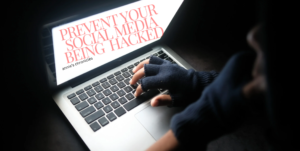How to Prevent Social Media Hacks and Keep Your Accounts Safe
Have you ever logged into your social media account only to find strange posts you didn’t make or messages sent to your friends that you never typed? Unfortunate you’re part of the club of people whose social media accounts have been hacked. But why does this happen, and more importantly, how can you prevent it?
Why Do Social Media Hacks Happen?
- Weak Passwords: Imagine this: Your password is “password123” or your pet’s name. It’s easy for you to remember, right? But guess what, it’s also easy for hackers to guess. Weak passwords are like leaving your front door wide open for anyone to walk in.
- Phishing Scams: Ever received an email or message that looked like it was from Facebook or Instagram asking you to log in immediately? These are often phishing scams. Hackers create fake websites that look real to trick you into giving away your login details.
- Public Wi-Fi Risks: Using free Wi-Fi at your favourite coffee or shopping malls shop might be convenient, but it’s also a playground for hackers. Public networks are often unsecured, making it easy for cybercriminals to intercept your data.
- Reused Passwords: Using the same password across multiple sites is a big no-no. If one site gets compromised, all your accounts with that password are at risk.
My Friend’s Nightmare
A friend of mine, let’s call her Sandra, experienced a hack last year. She loved online shopping and often logged into her social media accounts on public Wi-Fi at cafes. One day, she noticed odd messages sent from her account to people she barely knew asking for money. Panic set in. It turned out that her habit of using “TaylorSwift123″ as her password for everything had backfired. Once hackers got into one account, they quickly accessed others.
How to Prevent Social Media Hacks
- Use Strong, Unique Passwords: Create passwords that are long, complex, and unique for each of your accounts. Use a mix of letters, numbers, and symbols. Password managers like Keeper or iCloud Keychain (iPhones) can help you manage them.
- Enable Two-Factor Authentication (2FA): This adds an extra layer of security. Even if someone gets your password, they can’t log in without a second form of identification, like a code sent to your phone.
- Be Wary of Phishing Scams: Always check the sender’s email address and the URL of the site you’re logging into. If something looks off, don’t proceed. Legitimate companies won’t ask for your password via email.
- Avoid Public Wi-Fi for Sensitive Transactions: If you must use public Wi-Fi, avoid accessing sensitive accounts. Use a VPN (Virtual Private Network) for a more secure connection.
- Regularly Update Your Software: Ensure your apps and operating systems are up to date. Updates often include security patches that protect against vulnerabilities.
- Check Account Activity Regularly: Regularly review your social media account activity. If you notice any suspicious logins or posts, change your password immediately.
Hacking incidents are not just technical issues; they have real-life implications, from embarrassing posts to severe privacy breaches. By taking a few simple steps, you can significantly reduce the risk of your social media accounts being hacked. Remember, it’s better to be safe than sorry. Protect your digital life with strong passwords, 2FA, and a healthy dose of skepticism towards unexpected messages and emails.

